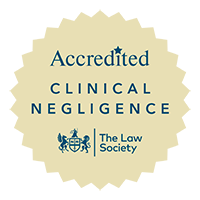Top ranked cerebral palsy claims lawyers

Boyes Turner’s cerebral palsy specialists have secured a liability judgment and £250,000 interim payment for a boy with diplegic cerebral palsy who suffered hypoxic ischaemic damage to his brain when his mother was negligently sent home from hospital three days after her waters had broken.
Pregnancy was high risk owing to prolonged spontaneous rupture of membranes (PROM)
Our client’s mother’s prolonged spontaneous rupture of membranes (PROM) put her pregnancy into the ‘high risk’ category but despite this, her reports of ‘tightenings’ and her own heartbeat being abnormally raised (tachycardic), she was not reviewed by an obstetrician. Instead, she was sent home from hospital with advice to return for monitoring the next day or if the tightenings became more painful.
NICE guidelines requiring continuous CTG monitoring in high risk labour ignored
Just after midnight she returned to the hospital after she started experiencing strong contractions earlier that night. She was admitted to hospital and the labour was allowed to continue. The fetal heart rate (FHR) was inadequately monitored by intermittent auscultation (listening), against the hospital’s own guidance and the guidelines issued by NICE (National Institute for Health and Care Excellence) which require the FHR in high risk labours to be continuously monitored by CTG.
Brain-damaged baby born in poor condition with low APGAR scores
The baby was delivered vaginally nearly six hours later. He was born in poor condition with low APGAR scores (a standardised post-natal measure of key factors affecting a newborn baby’s health) and no respiratory effort. Blood tests revealed that he was acidotic. He was transferred to the special care baby unit (SCBU) where he showed evidence of seizures and oxygen desaturations. An ultrasound scan showed brain swelling and MRI scans later revealed that he had suffered hypoxic damage to his brain.
The claim
Our client’s family instructed us to investigate whether their child had a claim. We obtained supportive expert opinions and pursued the claim against the defendant hospital on the basis that their negligent failure to admit our client’s high-risk mother to hospital and continuously monitor the FHR resulted in a delay in our client’s delivery. Between the time when his mother should have been admitted and the time of his eventual delivery, he suffered chronic partial oxygen deprivation which the midwives failed to recognise. With correct monitoring and care and earlier delivery, our client would have avoided his brain injury and lifelong disability.
The defendant hospital admitted that the midwives were negligent in their failure to monitor the high risk labour correctly after our client’s mother was admitted in labour. The hospital’s own internal investigation had criticised the monitoring of the labour and, after a period of practice supervision, one or more of the midwives were struck off the midwifery register. However, the defendant denied that obstetric review, earlier admission, and continuous monitoring should have taken place when the tachycardic mother was sent home earlier that day. They also denied that their negligence was the cause our client’s neurological damage, given the chronic (lengthy), partial nature of our client’s asphyxial injury.
Full admission of liability and £250,000 interim payment
A critical stage in any contested medical negligence claim is exchange of experts’ reports. This takes place after each side has formally presented their case in the legal ‘pleadings’ – the particulars of claim and the defence - and provides the proof that the claim or defence is based on medical expert opinion. Throughout this case, the defendant maintained its denial that the claimant’s injury was caused by its negligence but when we pushed the defendant to disclose the experts’ reports upon which this denial was based, the defendant was unable to do so and admitted full liability for our client’s injury.
We entered judgment and secured an interim payment of £250,000 to meet our client’s urgent needs whilst we now work with the family and our experts to assess the full value the claim.
If you are caring for a child or a young adult with birth-related or neonatal neurological injury and would like to find out more about making a claim, contact us by email on cerebralpalsy@boyesturner.com.
They have a great deal of knowledge and expertise, and client care seems to be their top priority.
Chambers Guide to the Legal Profession
Contact our expert Cerebral Palsy solicitors today for support with your claim




